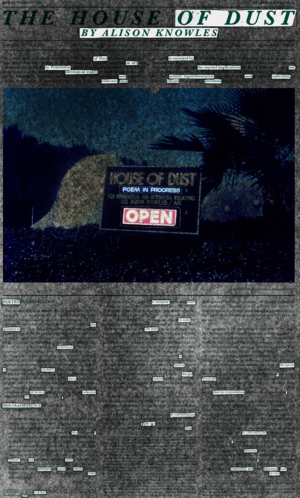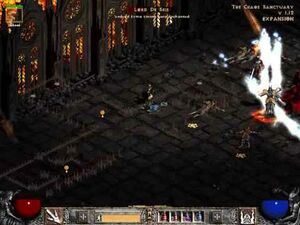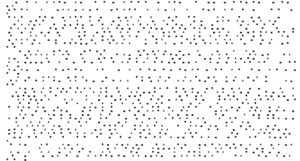User:Ålnik: Difference between revisions
| Line 104: | Line 104: | ||
02. [https://hub.xpub.nl/soupboat/~alnik/xpub1/lab/si17/week%2005/connect-less.html Game design: Connect-Less] [individual work]<br> | 02. [https://hub.xpub.nl/soupboat/~alnik/xpub1/lab/si17/week%2005/connect-less.html Game design: Connect-Less] [individual work]<br> | ||
“Well, if you are a [well-connected] man, you will [network] from morning till night. When you [wake up], you [get outside], and when [you get there, you network - you meet people and you connect with them]. You do that right straight through the day. And what’s more, no back talk. Now a [well-connected] man does just what he’s told to do, and no back talk. Do you understand that?” | |||
—rephrased Frederick Winslow Taylor, The Principles of Scientific Management (1911) [rephrased content is in square brackets] | |||
—from"Selfwork", Karen Gregory; Kirsty Hendry; Jake Watts; Dave Young February 02, 2017 | |||
Networking is quite crucial for our work and success, isn't it? The better we are connected, the more opportunities we have. The more opportunities we get, the more chance we have to get work and gigs. Your success and wellbeing depends on how connected you are. The more, the merrier. | |||
However, some might feel the pressure of constant networking and being out there. The fear of missing out. The opportunities never reached. All the anxiety that may bring. | |||
In this silly exercise you and your partner will explore ways to connect to other well-connected creatures like you (either circles or squares). And to reflect on all of this in a simple conversation while doing some simple lines. However, you networks might collide. You must not cross any other connection (line) and find your way around them. You must connect as much as possible. | |||
03. [https://pad.xpub.nl/p/fanfiction_jian_al_miri ''Flirting at School'' game fan-fiction] [w/ Jian & Miriam]<br> | 03. [https://pad.xpub.nl/p/fanfiction_jian_al_miri ''Flirting at School'' game fan-fiction] [w/ Jian & Miriam]<br> | ||
Revision as of 00:38, 10 February 2022
Hello, world! Ål here.
About
Digitart, illustration, visual facilitation & scribing, graphic design. Looking for experimenting with tools, researching peculiar topics and finding focus before the end of XPUB2. ;)
XPUB1
Special Issue #16: Vernacular languages processing
Vernacular language processing methods
00. Mix of Sauces
Reader prototyping project developed in class by Kamo, Supisara & me. We tried the method of taking a complex text and simplifying by putting it in chat bubbles. Find out more here.
01. Blackout (poetry)
def Blackout poetry (when a page of text is completely blacked out (coloured over with permanent marker so that it is no longer visible) except for a select few words. When only these words are visible, a brand new story is created from the existing text.)
Blackout (poetry) is an intervention in someone else's work to create new meanings, express new ideas, find new directions. It can also be a way to annotate and focus on the big picture. Or not?
Example: Blackout poem from the first page of the "House of dust" journal, see here. There are at least two ways to read the annotated result - 1 here and 2 here.
02. Repetition and new meanings
By printing a short sentence a hundred times, repeating itself, we can discover a new meaning. We can start from a different word every time and construct several meanings. Pretty simple, but fun to try. Example: Welcome to the World of Bees
03. Petition comments processing
Experimenting with my first steps in processing natural language with Python. For this exercise I took a petition tackling the housing crisis in the Netherlands and the comments of people who signed it. In order to get to know their stories, real problems and reasons for participation, I copied their comments in a pad and then ran a function to extract the adjectives - the words they used to describe the situation or their feelings. See the petition comments pad here and the pad with the extracted adjectives. Here is the processing code.
Challenges not solved: we see the adjectives out of context; you don't see when an adjective had also a negative "no/not" before it. How do you get what was the sense behind the adjective when filtering them like this? What can you do with this output?
04. Rejection as a self-care
Together with Miriam, we elaborated on the idea of looking at the rejection as a self-care mechanism. Here are our concept and brainstorming.
05. Final project: Annotation Compass
As part of our "Learning How To Walk While Catwalking" themed special issue, together with Kamo, Jian, Kim, Supi and Emma, we created and explored the "Annotation Compass": a tool for gathering situated impressions in order to create individual, vernacular and poetic readings of various inputs (such as space, image, text).
Rotterdam Impressions
These illustrated subjective maps represent the impressions of the first year master students of Experimental Publishing at the Piet Zwart Institute. Their situated experiences trigger various ways to describe their new home: Rotterdam. They were invited to reflect on the way they remember some of the areas in the city and to describe how they feel about them. In words, in their own vernacular English - the common language that is not native to anyone of them but the main language they communicate between each other. Afterwards, their descriptions were filtered by a Python function to extract the most common words they used whilst describing their perceptions of the selected areas on the map, divided in three main categories - adjectives, nouns and pronouns. The final outcome is this short list of the most common impressions of various places and illustrated maps as an artistic expression of the author. Discover my showcase of the "Annotation Compass" here. See my whole journey here.
Research
What is vernacular language? Before, now, tomorrow. When was the first time anyone came with the concept of vernacular? How can it be processed? What interventions can be done and why?
In the world of abstract, whilst trying to orientate myself, I am looking for familiar things and starting points. A little side-gig exploration on my own is available here and here.
Prototyping
Embracing on a journey to play with programming and create stuff whilst doing that.
First trimester:
- Functions Library
- Week 01 - first steps in Phyton (XP 4, 5 & 6)
- Week 02 - processing language & more experiments (XP 7, NL 1)
- Week 03 - nltk, first baby steps to do our own functions (NL 2, XP8 hopefully...)
- Week 04 - XP, NL
- Weeks 05-06 - hello, corpora
- Week 07 - catching up with XP and counting
- Week 08 - using Python for processing input on etherpad
- Week 09 - using Python to create html file, enhance with css
- Week 10 - flask, forms, more experiments with rotterdam impressions idea
Reflection
My reflections on the process of creating our first Special Issue.
Special Issue #17: Productive Play
Glossary
All the terms connected to the topic, researched & defined by us all.
Reading list
Research & documentation
Weekly pads
- week 01 [introduction]
- week 02 [ideology, gamification]
- week 03 [monetization mechanics, further reading, karaoke]
- week 04 [digesting, tutorials, glossary]
- week 05 [prototyping: puzzles, mazes, human computing; editorial: modding; fan-fiction]
Projects & research works
00. Karaoke reading group [w/ Chae, Kamo, Mitsa, & Erica]
[Karaoke] is a playful format (a game?) that makes the player follow the lyrics and play along. While you are singing the song you get to spend some time with the lyrics as well - some pay attention to them, others are more concentrating on keeping up with the tempo. However, you definitely pay more attention to them than when simply listening to the song.
[Rewriting symbolic song] The process started with reflecting on the readings as a group and putting on place key phrases that stuck with us. Things we wanted to bring up when we were writing the new lines. While rewriting someone else's lyrics, we were following the number of syllabises in order to keep the rhythm. And only after that we managed to work on matching the rhymes.
01. Game analysis: Diablo II Lord of Destruction [individual work]
I played this game a lot when I was a teenager. My favourite moments were collecting rare items (armoury, charms, weapons) for my character and enhancing her skills and strength. I used to spend extra time on walking around to reveal the whole map of each world, thus I was always trying to make my character being able to run faster. I was even repeating some levels in order to make her stronger before going to the next Act.
[Ideology analysis] was a curious process to get back to something familiar from another life and look at it from another point of view. Here are some observations about the game design and gameplay.
02. Game design: Connect-Less [individual work]
“Well, if you are a [well-connected] man, you will [network] from morning till night. When you [wake up], you [get outside], and when [you get there, you network - you meet people and you connect with them]. You do that right straight through the day. And what’s more, no back talk. Now a [well-connected] man does just what he’s told to do, and no back talk. Do you understand that?”
—rephrased Frederick Winslow Taylor, The Principles of Scientific Management (1911) [rephrased content is in square brackets] —from"Selfwork", Karen Gregory; Kirsty Hendry; Jake Watts; Dave Young February 02, 2017
Networking is quite crucial for our work and success, isn't it? The better we are connected, the more opportunities we have. The more opportunities we get, the more chance we have to get work and gigs. Your success and wellbeing depends on how connected you are. The more, the merrier. However, some might feel the pressure of constant networking and being out there. The fear of missing out. The opportunities never reached. All the anxiety that may bring. In this silly exercise you and your partner will explore ways to connect to other well-connected creatures like you (either circles or squares). And to reflect on all of this in a simple conversation while doing some simple lines. However, you networks might collide. You must not cross any other connection (line) and find your way around them. You must connect as much as possible.
03. Flirting at School game fan-fiction [w/ Jian & Miriam]
04. Modding discussion [w/ Jian & Miriam]




